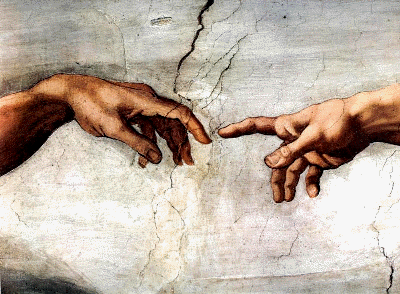This is a continuation of a post from the last three weeks, part 1, part 2 and part 3.
Last week’s post ended with this:
Jesus also said, “If you love me, you will obey what I command.” (John 14:15) Depending on your background, when you read that passage, you may hear, If I loved God, I would obey Him perfectly, but because I’m not, I must not love Him. This is what I hear, through the filter of knowing God as patient and kind: If I fully love God with all that I have and all that I am, out of that heart of love and trust will flow obedience because I know of His goodness and faithfulness.
Jesus goes on to immediately talk about the Holy Spirit, “And I will ask the Father, and he will give you another Counselor to be with you forever – the Spirit of truth. The world cannot accept him, because it neither sees him nor knows him. But you know him, for he lives with you and will be in you.” v. 16-17
It is not a coincidence that Jesus talks about the Holy Spirit immediately after obedience. God gave us the Holy Spirit to help us love Him fully and to empower us to obey His commands. He sent us His spirit so we can act like the free person He already made us to be.
How do we act like a free person? We all have those moments where we are tempted to act like our old self and not like a free person, those moments where we are:
Tempted to sin
Tempted to see ourselves in any other way than how God sees us
Tempted to believe the lies we have bought into and fall back into old patterns
Tempted to take our unhealthy/unhelpful thoughts and run with them
A free person grows to realize the temptation she is experiencing is common to man. She chooses to act as if she were free rather than act as if she is still enslaved to that temptation and has no choice but to give in.
A free person would say to that lie about his identity, “That’s not what Jesus says about me!” A free person would say to that boundary violation, “I will leave the room if you continue to speak to me that way.” A free person would reason, “In the past, my emotions have felt overwhelming, so rather than choose to feel them, I chose to medicate my emotions through food, sex, power, escape. I can make different choices today, knowing that I can experience these emotions and they won’t suffocate me because I can handle anything with the Freedom Giver and other freedom seekers at my side.”
This isn’t just about saying no to sin, though that is an important piece. It’s about saying no to bondage in all its forms and saying yes to throwing off the chains.
We are training to run a new race. When we were slaves to sin, our body and mind were trained, when faced with temptation, to respond a certain way. We gave in to the negative thoughts, we let our boundaries be trampled on, we believed the lies we’d been told. An athlete needs to discipline himself to train, when it might feel more natural to sit on the couch and watch TV. Similarly, we too need to train and discipline ourselves so that when we are faced with temptation, we, like Joseph in Genesis 39, flee the scene rather than give in to old habits and say yes.
“From now on, think of it this way: Sin speaks a dead language that means nothing to you; God speaks your mother tongue, and you hang on every word. You are dead to sin and alive to God. That’s what Jesus did. That means you must not give sin a vote in the way you conduct your lives. Don’t give it the time of day. Don’t even run little errands that are connected with that old way of life. Throw yourselves wholeheartedly and full-time―remember, you’ve been raised from the dead!―into God’s way of doing things. Sin can’t tell you how to live. After all, you’re not living under that old tyranny any longer. You’re living in the freedom of God.” Romans 6:11-14 (MSG, emphasis mine)
There are a million different reasons why we choose to give in to old behaviors/patterns/choices rather than choosing to act free. It’s not just because it feels good or natural. For many of us, these old ways of responding are all we have ever known. We may have begun self-medicating with various behaviors at a young age because we lacked coping mechanisms to deal with the painful trials in our lives. We wanted to escape uncomfortable feelings. We felt lonely, rejected, or unlovable – so we went out and tried to hook up with someone. We overate. We overspent. We fantasized. The feelings were still there, but we got to avoid them for awhile. We may have felt entitled to the temporary pleasure and relief of sin, telling ourselves, I deserve this. It has simply become a habit. It’s just the way we are, and what we’ve always done.
Except it’s not the way we are anymore! If we are in Christ, we are now slaves to righteousness (Romans 6:18). We have the capacity and ability, through the power of the Holy Spirit, to make different choices.
When we start actively saying no to our old nature and way of doing things, we need to make sure we have our support system in place to help us follow through (back to Freedom Step Two) and to hold us accountable. I heard someone who struggled with same-sex attraction share in his testimony that he would go to his counseling appointments, feel all these overwhelming feelings, and on the way home, he’d hook up with someone. Finally, he contacted a friend and said something to the effect of, “Look, I just need someone to hang out with me for a couple hours after my appointment.” Learning appropriate self-care is part of acting like a free person. Learning to voice your wants and needs is part of choosing to act like a free person. And learning to sit with those uncomfortable feelings, turning them continually over to God, is also part of learning to walk in freedom.
That is Freedom Step Five: Act like a free person.
Next week, I will write about owning your choices.


